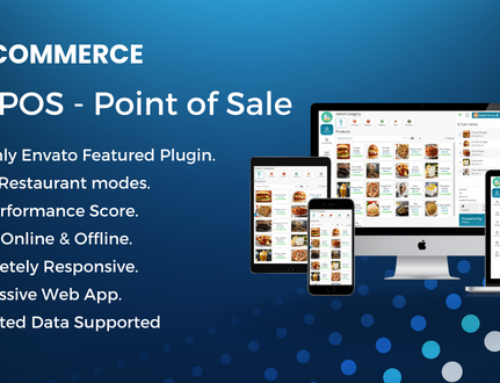Shipping Master – Shipping & Logistic Management System
Logistic Management is a comprehensive shipping and logistics management system that revolutionizes the way businesses handle their shipping operations. With its advanced features and user-friendly interface, it streamlines the entire shipping process, from order placement to final delivery. This system encompasses various modules and functionalities that enhance efficiency, accuracy, and cost-effectiveness. In this article, we will explore the key features and benefits ofLogistic Management, highlighting how it can transform your shipping and logistics operations.
One of the core functionalities ofLogistic Management is order management. This module allows businesses to consolidate and organize their incoming orders in a centralized system. Through an intuitive dashboard, users can view, track, and process orders seamlessly. The system provides real-time updates on order statuses, ensuring transparency and reducing the risk of errors or delays. WithLogistic Management, businesses can easily manage high order volumes, assign shipping carriers, and generate invoices and shipping labels with just a few clicks.
Efficient inventory management is another critical aspect of theLogistic Management system. It enables businesses to track and control their inventory levels accurately. The system provides real-time visibility into stock levels, allowing users to avoid stockouts and make informed decisions about replenishment. Furthermore,Logistic Management integrates with barcode scanners and RFID technology, facilitating automated stock management and minimizing human errors. This ensures that businesses can maintain optimal inventory levels while avoiding excess holding costs.
To optimize shipping routes and reduce costs,Logistic Management incorporates advanced logistics management features. The system analyzes various factors such as distance, mode of transportation, and delivery time to determine the most efficient shipping route. By minimizing travel distance and transit time, businesses can save on transportation costs and enhance customer satisfaction.Logistic Management also allows users to track shipments in real-time, providing accurate ETA (estimated time of arrival) information and enabling proactive communication with customers.
TheLogistic Management system simplifies the complex process of carrier selection and management. It integrates with multiple shipping carriers, enabling businesses to compare rates, transit times, and service quality. This ensures that businesses can choose the most cost-effective and reliable carrier for each shipment. Moreover,Logistic Management automates the process of generating shipping labels, customs documentation, and other necessary paperwork. This not only saves time but also reduces the risk of errors and compliance issues, ensuring smooth customs clearance and international shipping.
Another notable feature ofLogistic Management is its robust reporting and analytics capabilities. The system generates comprehensive reports on various aspects of shipping and logistics, such as order volume, carrier performance, transit times, and delivery accuracy. These insights enable businesses to identify bottlenecks, optimize processes, and make data-driven decisions. By leveraging this information, businesses can continuously improve their shipping operations, increase efficiency, and enhance customer satisfaction.
In addition to its core functionalities,Logistic Management offers integrations with e-commerce platforms, ERPs (Enterprise Resource Planning) systems, and warehouse management systems. This seamless integration enables businesses to streamline their end-to-end operations, from online order placement to final delivery. By eliminating manual data entry and promoting data consistency across systems,Logistic Management eliminates redundancies and improves overall productivity.
Logistic Management is a powerful shipping and logistics management system that provides businesses with the tools they need to optimize their shipping operations. With its comprehensive features, including order management, inventory control, logistics optimization, carrier selection, and robust reporting, it empowers businesses to enhance efficiency, reduce costs, and improve customer satisfaction. By implementingLogistic Management, businesses can stay ahead of the competition in today’s rapidly evolving shipping industry.
Core Features of this site
Logistic Management is a comprehensive Shipping and Logistic Management System that offers a wide range of features designed to streamline and optimize shipping operations. With its user-friendly interface and robust functionality,Logistic Management provides businesses with the tools they need to efficiently manage their shipping and logistics processes. We will explore the key features ofLogistic Management and explain how they can benefit organizations in the shipping industry.
Order Management:
Logistic Management offers a powerful order management module that allows businesses to easily create, track, and manage orders. Users can input order details, such as customer information, product details, and shipping preferences, into the system. The system then automates the process of generating shipping labels and tracking numbers, ensuring accurate and efficient order fulfillment.
Inventory Management:
Efficient inventory management is crucial for shipping operations.Logistic Management provides comprehensive inventory management features that enable businesses to keep track of stock levels, manage warehouse locations, and monitor product movement. Users can set up alerts for low inventory levels, enabling proactive replenishment to avoid stockouts and delays in fulfillment.
Carrier Integration:
Logistic Management integrates with various shipping carriers, allowing businesses to compare rates, select the most cost-effective shipping options, and generate shipping labels directly from the system. This integration eliminates the need for manual data entry, reducing errors and saving time.
Freight Management:
For businesses that deal with freight shipping,Logistic Management offers robust freight management capabilities. Users can manage contracts with freight carriers, schedule shipments, track deliveries, and generate relevant documentation, such as bills of lading and customs forms. These features simplify the complex process of freight management and improve overall efficiency.
Route Optimization:
Logistic Management utilizes advanced algorithms to optimize shipping routes, considering factors such as delivery addresses, carrier rates, and transit times. By automatically determining the most efficient routes, businesses can reduce transportation costs, minimize delivery times, and enhance customer satisfaction.
Warehouse Management:
The warehouse management module inLogistic Management enables businesses to effectively manage their warehouse operations. Users can assign locations for incoming stock, track inventory movement within the warehouse, and optimize picking and packing processes. This streamlines warehouse operations and improves order fulfillment speed.
Reporting and Analytics:
Logistic Management provides comprehensive reporting and analytics capabilities, offering businesses valuable insights into their shipping and logistics performance. Users can generate reports on key metrics, such as order fulfillment rates, shipping costs, and delivery times. These insights help identify areas for improvement and make data-driven decisions to optimize operations.
Customer Communication:
Effective communication with customers is vital for a positive shipping experience.Logistic Management offers features such as automated shipping notifications, real-time tracking updates, and customer self-service portals. These tools keep customers informed about their shipments, enhance transparency, and improve customer satisfaction.
Integration with E-commerce Platforms:
For businesses operating in the e-commerce space,Logistic Management integrates seamlessly with popular e-commerce platforms. This integration enables automatic order imports, real-time inventory updates, and synchronized tracking information. By connecting the shipping system with e-commerce platforms, businesses can streamline their operations and provide a seamless experience for online shoppers.
Compliance and Documentation:
Logistic Management helps businesses comply with shipping regulations and generate necessary documentation. The system keeps track of shipping regulations and automatically generates compliant shipping labels, customs forms, and other required documents. This reduces the risk of non-compliance penalties and ensures smooth customs clearance.
Conclusion
In conclusion,Logistic Management offers a comprehensive set of features that empower businesses to streamline their shipping and logistic management processes. From order management and inventory control to carrier integration and route optimization, this system enhances operational efficiency, reduces costs, and improves customer satisfaction. With its user-friendly interface and powerful functionality,Logistic Management is an invaluable tool for organizations in the shipping industry.








